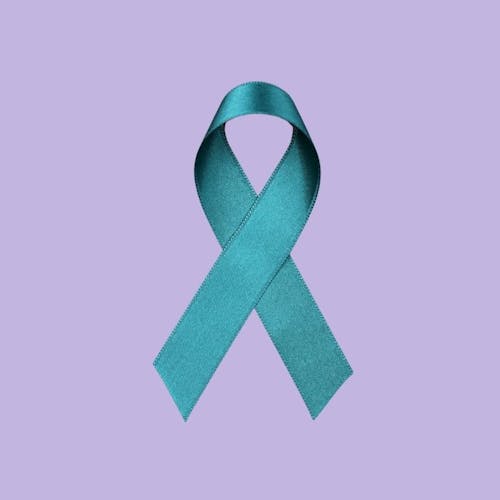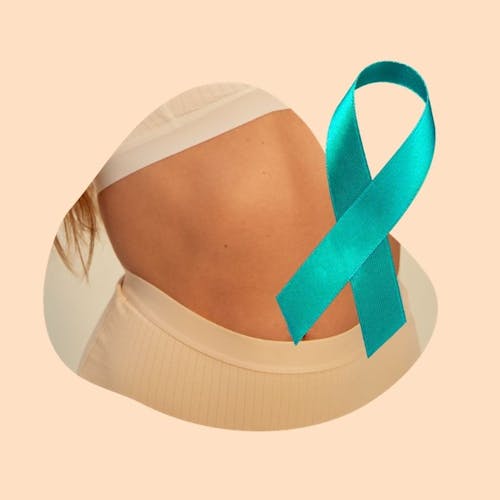This website uses cookies to enhance the user experience. By using Yoppie you are agreeing to our use of cookies.
Help, I've Got Hairy Nipples! Should I Worry?
Written by Yoppie
08 Oct 2021
Why do I have hairy nipples?
What are my hormones doing?
I’ve heard it could be PCOS. Is this true?
Could it be anything else?
Do other women have hairy nipples? How do I know if I’m normal?!
Do I have to remove the hair?
How do I get rid of it?
Can I bleach them? Or use a hair removal cream?
Do I need to see a doctor?
Now more than ever we’re taught to love our bodies just as they are, practise self-love to the max, and embrace our perceived imperfections… but when we find hairs growing on our nipples, it seems to be a very different story.
Many of us are embarrassed by them, since most women have spent years being conditioned to believe we must be entirely hairless below the eyebrows. Let’s talk hairy nipples; why this happens, how to remove hair (if you want to), and why you don’t have to...
Why do I have hairy nipples?
Believe it or not, hairy nipples are thought to be relatively common for women. Some boobs have just a few hairs, others have an areola forest! Our bodies are covered in hair follicles which usually grow tiny, transparent hairs all over. Unfortunately for many of us, these can grow longer and darker in the most random places thanks to… you guessed it… hormones.
What are my hormones doing?
Your hormones trigger a bunch of stuff to happen each month, but they tend to cause excess hair to grow during pregnancy and menopause. Still, at any age or stage in life, you may find yourself with hairy nipples - not to worry.
You may also be prone to an overproduction of testosterone, which encourages symptoms like hair growth, oily skin, hair loss on your head (the irony!), and more. If you think this could be the case for you, speak to your doctor about a hormone test to find out what’s going on.
I’ve heard it could be PCOS. Is this true?
Polycystic ovary syndrome (PCOS) could be one cause of hairy nipples due to a hormone imbalance. This condition is thought to affect around 1 in 5 people with periods, and influences the way the ovaries function, leading to symptoms such as irregular periods, ovarian cysts, fertility issues, and excessive hair growth in seemingly odd places.
Could it be anything else?
There is also a possibility that hair growth on the nipples could be a result of another hormonal imbalance called Cushing’s syndrome. Cute name, not so cute when it comes to the symptoms, which include excess hair growth, abnormal periods, high blood pressure, fat buildup in specific places, and more.
This very rare condition occurs due to an excess of cortisol in the body, and though it’s unlikely to be the cause of your nipple hair growth, you can always discuss it with your doctor if you are concerned.
Do other women have hairy nipples? How do I know if I’m normal?!
There’s no such thing! Having random hairs sprout in odd places is pretty common, though many women choose not to report the symptom, and simply manage it themselves. Hairs may be long, short, coarse or fine, so don’t worry that yours are abnormal. They’re not.
Do I have to remove the hair?
Not if you don’t want to. You should only remove excess hair on your nipples if it is affecting your confidence, otherwise there is no medical reason you need to. Remember it will only be seen by you and perhaps a partner occasionally. However, if you would prefer to remove it, there are many options available.
How do I get rid of it?
If you choose to remove the hair on your nipples, here are the best ways:
- Frequently trim it using small scissors, but be very careful when you do this - nobody wants an accidental nip snip (ouch)!
- Tweeze them. The skin around the nipple is very sensitive, so it’s best to do this just after a warm shower when your pores are open and hairs are more easily removed.
- Shaving is an option, but be very careful when using a razor around the nipple area.
- If you prefer waxing (which can also be painful on sensitive nipples!), it’s best to go to a salon to have this done properly by a professional.
- If you want something potentially more long-term, you may be able to opt for laser treatment, but keep in mind this is both uncomfortable and pricey.
Can I bleach them? Or use a hair removal cream?
The skin and hair around your nipples are super sensitive, and products designed to bleach or remove hair are particularly strong and tend to irritate delicate skin, so it’s best to stick to one of the above methods instead.
Do I need to see a doctor?
If your only symptom is hair around your nipples, then there is no reason to see a doctor about this. If however, you have accompanying symptoms that concern you, it’s always best to speak to your GP and mention that excess hair growth is one of your symptoms.
They may do tests to rule out conditions like PCOS and Cushing’s syndrome, and figure out what’s going on with your hormones. If hormones are to blame, they may also be able to advise which treatments could help, such as birth control pills or single hormone treatment.
Got questions about hairy nipples? You can chat to others in our Full Stop FB group, or if you’d prefer to remain anonymous (no judgement!) you can DM us on Instagram at @itsyoppie - we’re always happy to answer for you. Don't forget that our personalised period box can get menstrual cycle care from organic tampons to hormonal supplements and more delivered easily and regularly through your letterbox, which is one less thing to worry about.
Section jump
Back to top
Subscribe To Our Newsletter
YOPPIE





© 2026 Yoppie is a registered trademark of Phlo Technologies Ltd.
Yoppie's supplements are not a substitute for a varied diet and healthy lifestyle and are not intended to diagnose, treat, or cure any disease. If you are pregnant, breastfeeding, have a medical condition or are under medical supervision, please consult with your doctor before taking any of our products.






